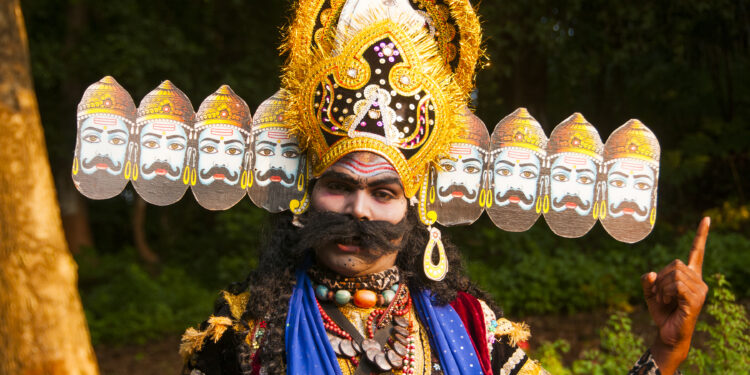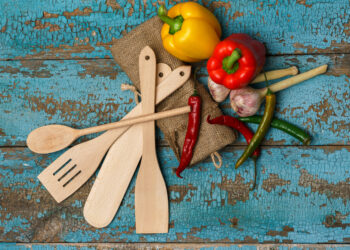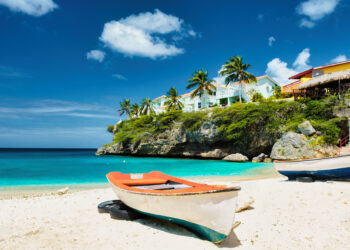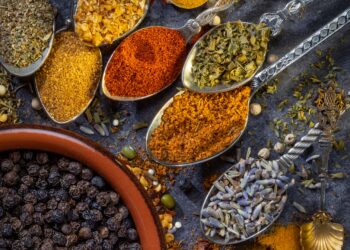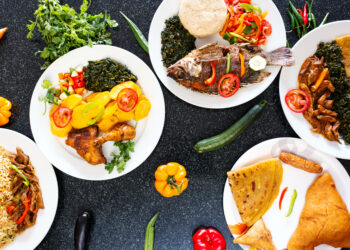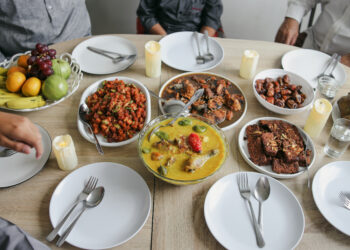Dussehra 2025 is not just a date in the Hindu calendar; it’s a powerful reminder that good can, and often does, triumph over evil. For many across the Indian diaspora, including the Indo-Caribbean community in the UK, this festival isn’t only about mythology or history; it’s about carrying forward values of resilience, courage, and community. And, of course, it’s also about the food, the colours, and the joyful noise that comes with celebrating a tradition thousands of years old in a thoroughly modern world.
What Is Dussehra?
Also known as Vijayadashami, Dussehra falls on the tenth day of the Hindu month of Ashwin, which in 2025 aligns with 2 October. The festival symbolises the victory of Lord Rama over the demon king Ravana, as narrated in the Ramayana. In other parts of India, it also represents Goddess Durga’s victory over the buffalo demon Mahishasura. Essentially, whichever region’s story you follow, Dussehra is about righteousness winning the battle against destructive forces.
In India, the day is often marked by grand processions, effigies of Ravana set ablaze, and dramatic enactments of the Ram Leela. But when you take that spirit and place it in the UK — a land of rainy autumn evenings and pumpkin-spiced lattes — it adapts, evolves, and finds new ways of shining.
Dussehra in the Diaspora: From Port of Spain to Southall
For Indo-Caribbean families, the Dussehra story arrived centuries ago with indentured labourers who carried their faith, songs, and stories across the seas. In Trinidad, Guyana, Suriname, and beyond, the Ram Leela became more than just performance theatre; it was a way to preserve identity in unfamiliar lands. Today, in the UK, those same traditions resurface in community halls, cultural centres, and even in online spaces where younger generations stream performances from back home.
In Southall, Wembley, and Birmingham, Dussehra celebrations are woven into the fabric of multicultural Britain. Expect to see stalls selling mithai, speeches about cultural pride, and children dressed up as little Ramas and Sitas. The firework displays may not rival Diwali’s sparkle, but the symbolism of burning Ravana effigies remains strong: an autumnal bonfire with a spiritual twist.
Food: The Sweet Taste of Victory
What’s a festival without food? In the Indo-Caribbean diaspora, Dussehra spreads are hearty and rooted in both Indian and Caribbean flavours. You’ll find:
- Seven Curry (or Satahan in Trinidad), sometimes prepared for Navratri and flowing into Dussehra gatherings.
- Pholourie with mango chutney, perfect for nibbling between prayers.
- Sweet treats like gulab jamun, barfi, and ladoo often sit alongside Caribbean delights like cassava pone and coconut drops.
- Fasting foods for Navratri — sabudana khichdi or aloo-based dishes — followed by a celebratory feast once Dussehra itself dawns.
Rituals and Symbolism
Even in diaspora settings, some key rituals remain at the heart of Dussehra:
- The burning of Ravana effigies: A visual reminder of evil’s destruction. Community groups in London and Leicester often stage smaller versions of these events.
- The Ram Leela plays: Amateur theatre groups and cultural societies perform simplified or shortened versions for children and families.
- Shami tree worship (applied in some traditions): Symbolising prosperity, though in the UK, people sometimes adapt by offering prayers to whatever greenery they can find in parks.
While the scale may be smaller than in India, the significance is not diminished. For many families, the point is not the spectacle but the message — that truth, goodness, and perseverance matter.
The Indo-Caribbean Layer: Heritage within Heritage
For the Indo-Caribbean community in the UK, Dussehra carries a double meaning. It’s not only a reminder of Indian ancestry but also of the journey through the Caribbean, where indentured labourers remade traditions in a new world.
- In Guyana, for example, the Ram Leela was staged in rural villages with homemade costumes, drums, and bamboo stages.
- In Trinidad, large-scale performances still draw crowds of thousands, blending folklore with modern theatre.
- In Suriname, Dussehra became a marker of Hindu identity, influencing everything from temple rituals to cultural events.
Bringing those influences into Britain means that an Indo-Caribbean Dussehra here feels layered — part Indian, part Caribbean, part British. Imagine Ravana effigies stuffed with recycled newspapers from The Guardian, or Ram Leela rehearsals fuelled by doubles and roti. It’s a heritage remix at its best.
A Festival for Reflection in 2025
Beyond the fireworks and feasts, Dussehra has always been a moment of reflection. What evils are we confronting in today’s world? For many in the UK diaspora, the symbolism has taken on new resonance in 2025:
- Good governance over corruption: A theme many find relevant when thinking about global politics.
- Community resilience over division: In multicultural Britain, celebrating shared values matters more than ever.
- Personal growth: Individuals take the chance to see Dussehra as a time to overcome personal challenges — from procrastination to unhealthy habits.
And let’s be real: there’s something deeply satisfying about imagining your metaphorical “Ravana” — whether it’s a bad habit, toxic relationship, or dodgy landlord — going up in flames.
Celebrating Dussehra in the UK: A Practical Guide
If you’re marking Dussehra 2025 in Britain, here are some ways to celebrate:
- Join community events: Check Southall, Leicester, Birmingham, and Harrow for cultural society gatherings.
- Cook a fusion feast: Blend Indian and Caribbean recipes for a unique diaspora Dussehra table.
- Create symbolic effigies: Even a small paper Ravana burnt safely in the garden can carry meaning.
- Tell the stories: Pass down the Ramayana tales to younger generations so they understand the roots of the festival.
- Practice reflection: Write down personal “evils” to conquer this year — and use the festival as motivation to tackle them.
The Future of Diaspora Festivals
As the Indo-Caribbean and broader South Asian community in the UK grows, festivals like Dussehra continue to evolve. Expect more digital celebrations (livestreamed Ram Leelas), eco-friendly effigies (no plastic or toxic dyes), and stronger youth involvement through schools and universities.
Cultural festivals are increasingly being seen not just as private events but as public celebrations that showcase Britain’s diversity. So don’t be surprised if, in a few years, Dussehra is as familiar to the wider British public as Diwali already is.
Final Word: Victory Tastes Sweeter Together
Dussehra 2025 is more than a date. It’s a cultural marker, a community gathering, and a reminder that the values carried in epic tales remain relevant in everyday life. Whether you’re watching an effigy burn in Leicester, eating cassava pone after a prayer in Croydon, or simply lighting a diya in your kitchen window, you are part of a global story of resilience and celebration.
So, as Ravana goes up in symbolic flames this year, may we all remember that even in modern Britain, good can — and does — prevail.
And for more stories, recipes, and reflections on Indo-Caribbean culture in the UK, don’t forget to follow CurryBien — your home for heritage.


